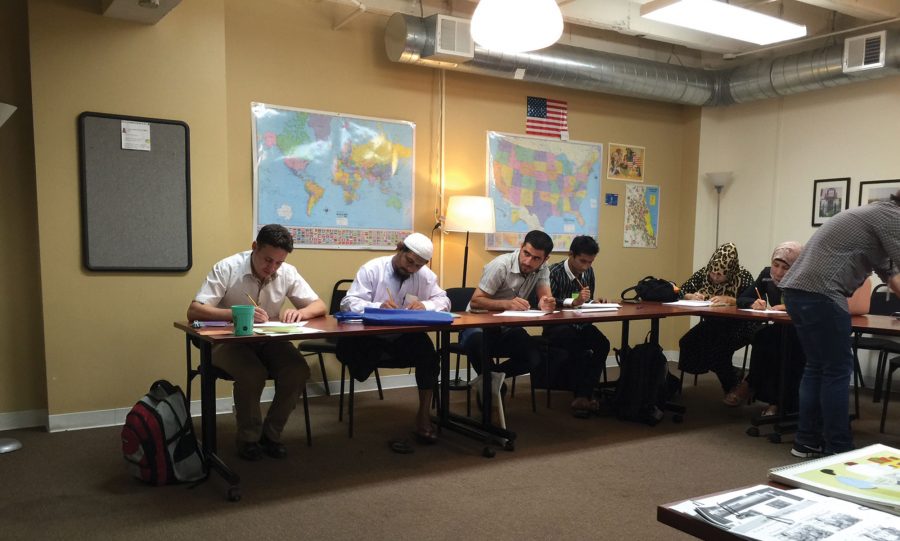English teacher helps. works with immigrants
September 23, 2016
While most teachers use summer as a time to get away from their demanding jobs, Language Arts teacher William Wesley decided that he would use his free time and teaching skills to give back and complete a task perhaps even more difficult than dealing with high school students: teach immigrants basic English skills.
“Watching people from different countries who spoke different languages make friends with one another was great,” Wesley said.
Wesley volunteered at Heartland Alliance, located in Chicago, every Tuesday and Thursday teaching immigrants from all over the world English and computer skills. According to the organization’s website, Heartland Alliance provides housing, healthcare, job training and secure safety across 12 countries. Specifically, they offer aid with immigration, visas, education, job placement and living arrangements to those who have been forcibly displaced from their own country.
“There’s a lot of conversation,” Wesley said. “You try to get to know people and their stories.”
Many of the students in the class had little to no experience speaking English, which required Wesley to start with topics as simple as the alphabet. From there, he built on each lesson little by little through playful games, humor and visual tricks, he said.
“It’s amazing how humor, even if you can’t speak the language, allows you to laugh with them and make them feel welcome,” Wesley said.
The classroom was adjusted to the students, Wesley said. A majority of the students came from the Middle East, but students came from other places as well. It was not uncommon for mothers to have their children in the classroom or in the hall, or for him to alter the class schedule based on the religious needs of students, Wesley said.
“Many of them could be traumatized from experiences, but the kids are always great,” he said.
Although the students were of different race, age and religion, they all had one thing in common: a hope for a safer future in America. No matter if they worked with Wesley one on one or in a group of 20 people, he was thanked profusely, Wesley said.
“It’s an extremely inspiring atmosphere,” Wesley said. “Some people had to flee countries where there was genocide and still find a way to smile and move on with their lives.”
In both classes, Wesley encountered many challenges in trying to teach with such a strong language barrier. The most difficult was coming up with creative ways to convey English words, Wesley said. While words like mouse could be more easily explained by squeaking around the classroom, Wesley also had to try and define some of the most basic words of the English language: such as if, to and the.
“In some ways it was like trying to teach a child,” Wesley said. “At Heartland, as in most ESL settings, the instructors do not use materials that translate from another language to English. We just have English words we are trying to teach them.”
Although Wesley was one of the teachers, this experience impacted him just as much as he impacted the students.
“Doing something like this will enrich your life and make you feel better about humanity and yourself,” Wesley said.
As Wesley’s first year as a volunteer, he plans to go back next summer and hopes to teach and connect with students like he did these past months.
“We are all the same,” Wesley said. “You realize no matter how different a person’s culture or language or religion is, at some level we’re all the same. We’re all just looking for decency and respect and a place that’s safe.”





















![Movie poster for '[Rec]" (2007).](https://www.lionnewspaper.com/wp-content/uploads/2023/04/rec-640x900.jpg)


